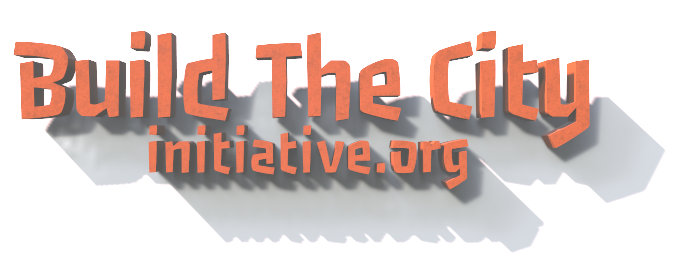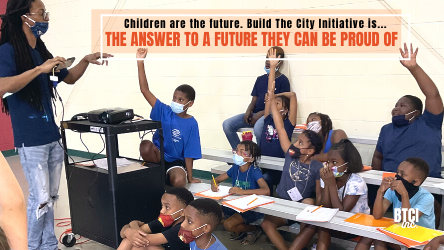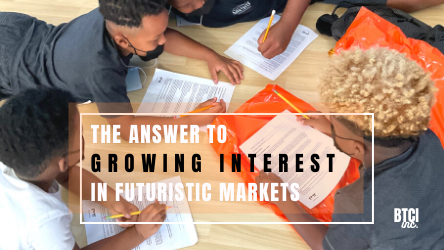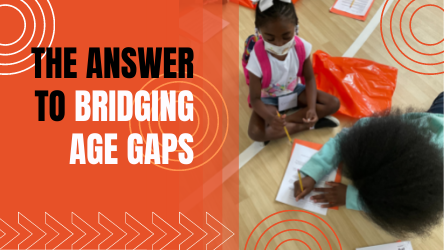We are now enrolling students!!
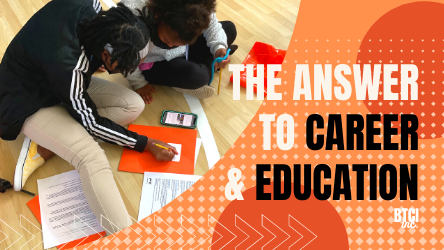
Students between the ages of 4 to 23 are welcome to enroll in our 8-month FORCE Program.
We are now enrolling students for our FORCE Program
that combines career training and advanced academia
with vital skills-training.
FORCE is an adaptive-learning program that teaches STEAM subjects, the usefulness and application of academic subjects, financial literacy and responsibility.
FORCE stands for Flexibility, Opportunity, Responsibility, Capability, and Excellence.
High Hopes
Orientation Period - Month 1: The purpose is to define expectations, set the atmosphere, and get to know students’ goals and ambition levels. During this period of time, we customize the program accordingly per student.
Two Parts:
1) Improving Quality of Life in America
During the first month, we intend to personalize the program for each student. This will include a counseling session per student and a series of discussions and assignments. Assignments will include cultural films that explore and identify themes related to identity, poverty, denationalization and social awareness for students in 6th grade and up.
2) Preparing for a Career & Bright Future
Students will receive business supplies and general study material, including tips on how to help peers.
The Fundamentals
Month 2: This section focuses on incorporating and applying academic subjects learned in school into students’ chosen career fields.
Virtual Workshop & Course: How to Pass Any Class & Retain the Information
Each student will learn how to break down and analyze a syllabus with the intent to manifest the grade they want at the end of the semester.
Knowing your teacher: Line of communication, expectations and background
Grade Percentage Breakdown: Working backgrounds and using basic algebra to determine the minimum and maximum grades students need per assignment to plan their week ahead and to manifest the grade they want.
Assignment Analysis: Going through books ahead of time to determine the length of each chapter, going through chapters and writing prompts to determine the level of difficultly, and to have a general understanding of the knowledge required to make the assignments easier
Comparing the Syllabus Workload to the Career of Choice
Students will have to learn and express in written format how each assignment on the syllabus can be used to enhance the career of choice during Month 2
Improving Grades
Studying, Test-Taking, Taking Notes & Homework
Students will dive deep into the topics mentioned to make sure they are retaining information. This will include the workshop mentioned above and open discussions.
Simplifying the studying process by conceptualizing the information, which helps when taking tests & planning for good grades
Finding the Best Method: finding methods that allows for each student to excel
Simplifying test taking by breaking it apart and isolating each part
Discussion: Live test taking. Each subject (American Literature and Composition, Algebra I/ Coordinate Algebra, Biology and U.S. History) will be assessed per question to get a live view of how each student answers questions.
Journaling after major tests throughout the year to help flush out the stress, paranoia, anxiousness & bad habits
Time Management - Homework, Studying, Extracurricular Activities, Free Time & Me Time
Creating a yearly schedule at the beginning of the year and learning how to alter the plan week-by-week or day-by-day
Flushing Out a Plan: Weekly progress journaling.
Discussion: What is Free Time, What is Me Time & What is Time for Obligations? Do you have a current schedule? What are your values? How do you spend your time now?
Choose Your Intended Career
The chosen industry can be broad. Students do not have to know what they want to do yet, but they should choose an industry and sector at this point in the program.

The Study of Human Behavior
This section will highlight fundamental psychology and philosophy subjects to help students identify the appropriate way to design projects/products for optimal user-experience. It also highlights how to identify personality traits to avoid and prevent unnecessary obstacles in life and in business.
STEAM
During this period, we establish the application and usefulness of science, technology, engineering, arts and mathematics.
science
The science section focuses on applying the scientific method to everyday decision-making, teaching students how to make informed, intelligent decisions. We practice thinking critically in multiple scenarios to help student overcome personal challenges and challenges of interacting with peers. We also show students how utilizing these techniques can help them overcome stress and low confidence.
technology
The technology section teaches innovation. It proves to students the usefulness of science. By studying technical aspects of everyday life, we make life better for ourselves and one another. Studying tech is about studying systems and how they can be improved.
engineering
The engineering section takes the analysis of those systems established over the course of the science and technology sections, and it applies improvements to the system. During these lessons, students begin thinking about the design and development of a personal project. They also begin to think about the manufacturing process, which is the improvement of existing designs. Specifically, processes related to the greater good of society and high-impact technology. They will learn lean six-sigma, user-experience, and project/product management. These lessons will be supplemented with specific Did It Myself lessons.
art
The art section is about seeing the world in all its creativity and expanding the mind to think creatively. It’s about emphasizing the purpose of craftiness when thinking about six sigma processes, user-experience and how projects/products are introduced to others based on their preferences and interests. Students will have art projects, including drawings and paintings that emphasize paying attention to detail and help students develop an appreciation for discipline. They will also design projects for the web, while following along with the Did It Myself app.
mathematics
The mathematics section is about helping students become more practical. We’ll focus on increasing mental math skills for basic addition, subtraction, multiplication and division. In addition, we'll take current lessons learned in school throughout the eight months and directly relate them to their usefulness in the world, lesson-by-lesson. It'll cover the professionals who use it, how they use it, how it contributes to the betterment of society and how students will implement it into their everyday life.
Grade level and age will conclude how we implement each section into the following assignments:
Assignment - ENGINEERING/ARTS: Think of something you could do or create to make life better or your household better in the industry you chose
Assignment - SCIENCE/TECHNOLOGY/MANUFACTURING: Use the scientific method to conclude how you will create the product (write down and/or draw your idea)
Assignment - BUSINESS/MATHEMATICS: Complete the sections of the business plan related to the product and the costs of creating it
Economics
This section is about getting students career-ready. They will learn budgeting, taxes, the job process, college loan and scholarships process, personal vs business credit, entrepreneurship, market fit and civics.
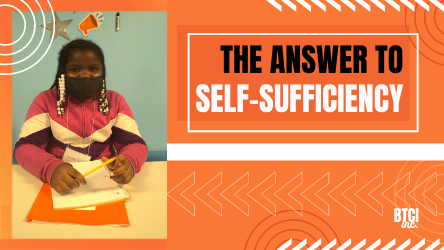
Grade level and age will conclude how we implement each section into the following assignments:
Assignment - WORKSHOP/ARTS/MATHEMATICS: Real estate architecture & real estate accounting
Assignment - WORKSHOP/TECHNOLOGY: Trading and investments industries (including cryptocurrency)
Fruition and Achievement
In this section, students will finalize their project/product and present it appropriately, based on their chosen career and industry. They will establish digital portfolios and be rewarded for completing the program.
Each students will create their React website and host it on Netlify. They will compile their work throughout the semester and publish it to their website.
